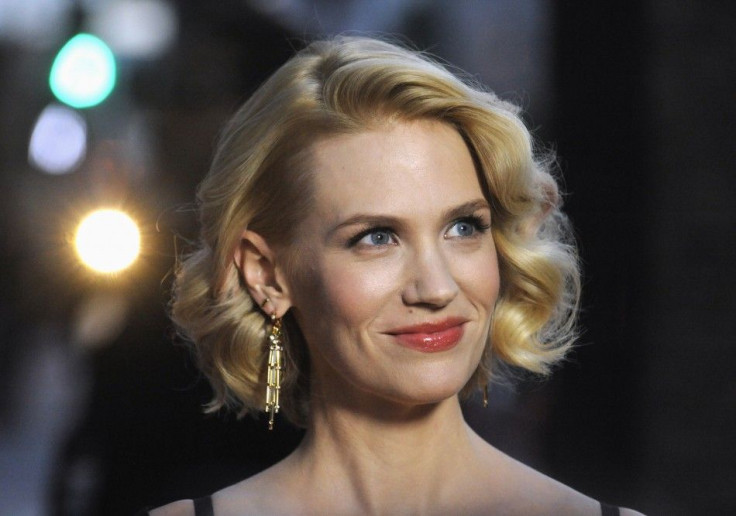‘Mad Men’ Actress January Jones Eats Own Placenta To Keep Energy Up: Is It A Health Risk?

In the wake of the Mad Men season 5 premier last night, which didn't feature a single second of January Jones, who plays Betty on the show, it's come out that Ms. Jones has developed an interesting way to keep her energy levels up while on the set: Jones, who gave birth to baby boy Xander Dane just seven weeks ago, is eating her own placenta on the set of the show.
Jones, 34, told People magazine that returning to work was tough right after giving birth. I had the baby and the baby nurse in their own room so I could go back and feed him every two hours, she said. If I felt like he needed me, or if he needed to eat, or even if I just needed a squeeze because I was having separation issues, I would go back and see him. It was such a blessing that I wasn't separated from him.
The lengths that Jones went to in order to spend time with her baby may seem extreme, but even more surprising is the lengths that Jones went to in order to keep her energy levels up when returning to the set of the show. She says that although being a mom and recording a hit TV show can be exhausting, a great diet has kept her up-to-speed.
I have a great doula who makes sure I'm eating well, with vitamins and teas, and with placenta capsulation, she said.
That's right.
January Jones is eating her own placenta in order to boost energy throughout the day. She explains the diet-choice in simple terms.
Your placenta gets dehydrated and made into vitamins, she says. It's something I was very hesitant about, but we're the only mammals who don't ingest our own placentas.
Unfortunately for Jones, that's not entirely true. Some seafaring mammals as well as camels do not eat their own placentas. But, many small mammals do eat their own placentas and the practice has been a part of traditional Chinese medicine for centuries.
People can believe what they want, but there's no research to substantiate claims of human benefit, said Mark Kristal, a professor at State University of New York at Buffalo who wrote a doctoral dissertation on why mammals eat their placentas, in a USA Today interview. The cooking process will destroy all the protein and the hormones. ... Drying it out or freezing it would destroy other things.
Kristal also said that in studies where the placenta of an animal mother was held from the mammal after giving birth, the mother did not become depressed or face other observed deficiencies. In a similar repot on the BBC, a spokesperson for the Royal College of Obstetricians and Gynecologists said, Animals eat their placenta to get nutrition, but when people are already well-nourished, there is no benefit. There is no reason to do it.
Despite the scientific evidence showing that placenta may not actually provide any mental or physical health benefits, the trend doesn't appear to be slowing down at all. According to one placenta-eater interviewed for a New York Magazine article on the subject, It tastes like jerky.
© Copyright IBTimes 2025. All rights reserved.





















